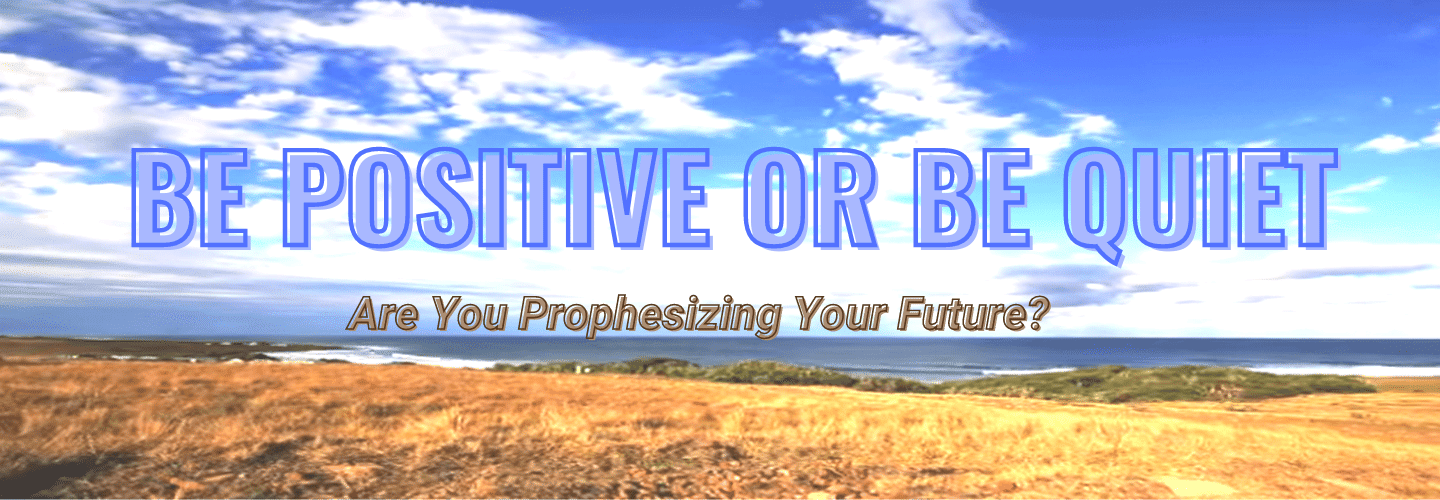
Imagine waking up in the middle of the night, heart pounding, drenched in sweat, gripped by a fear you can't quite place. What keeps you up at night, tangled in the web of what-ifs and worst-case scenarios? How do you find the strength to face those fears head-on, to step into the unknown with a sense of purpose and determination? The journey from fear to courage is a complex one, influenced by a myriad of factors that shape our perceptions and responses to the world around us.
Past Traumatic Experiences
When faced with past traumatic experiences, it's essential to acknowledge their impact on your present state of mind and emotional well-being. Your experiences have shaped you, but they don't define you. It's okay to feel the weight of those memories, the pain, and the fear that linger within you. Remember, healing isn't about forgetting the past but about finding peace within it.
As you confront these past traumas, be gentle with yourself. It takes courage to revisit painful memories, to allow yourself to feel vulnerable. But in facing these experiences head-on, you're taking the first step towards healing. Acknowledge the hurt, the anger, the sadness, and then release them. You deserve to move forward with a lighter heart and a clearer mind.
Biological Responses to Threats
Confronting past traumas not only affects your emotional well-being but also triggers specific biological responses to threats within your body. When faced with a threat, your body's stress response kicks in. The amygdala, your brain's fear center, sends distress signals to the hypothalamus, which then signals the adrenal glands to release adrenaline and cortisol. These stress hormones prepare you for fight or flight by increasing heart rate, sharpening focus, and boosting energy levels. Your body is gearing up to protect you.
Moreover, this stress response can become a cycle if not managed. Chronic stress can lead to health issues like high blood pressure, weakened immune system, and increased risk of anxiety and depression. Recognizing and addressing these biological responses is pivotal in breaking the cycle of fear and anxiety. By practicing relaxation techniques, engaging in regular physical activity, and seeking support from loved ones or professionals, you can regulate these responses and cultivate courage in the face of threats. Remember, understanding your body's reactions is the first step towards mastering them.
Social Conditioning and Fear

To overcome fear rooted in social conditioning, it's essential to critically examine the beliefs and norms that have been ingrained in your perception of the world. Social conditioning shapes our fears by influencing how we perceive threats and dangers in our environment.
Here are three key points to contemplate:
- Identifying Influences: Reflect on the societal messages you have internalized regarding fear. Ponder how cultural norms, family values, and societal expectations have impacted your perception of what's fearful or dangerous.
- Questioning Beliefs: Challenge the validity of the fears instilled by social conditioning. Ask yourself why certain things evoke fear in you and whether these fears are rational or simply a product of external influences.
- Cultivating Awareness: Develop a conscious awareness of how social conditioning affects your fears. By understanding the root of your fears, you can begin to separate rational concerns from those that are based on societal constructs.
Impact of Media and News
The continuous onslaught of sensationalized stories and fear-inducing headlines in the media can greatly influence your perception of the world and fuel your anxieties. It's important to recognize that the media often focuses on negative and alarming news because it tends to grab attention more effectively.
This constant exposure to distressing information can create a distorted view of reality, making it seem like danger is always lurking around the corner. While staying informed is vital, it's equally necessary to consume news mindfully and critically.
Try to balance your media intake by also seeking out positive and uplifting stories that showcase acts of kindness and resilience. Remember, you have the power to choose what you expose yourself to and how you interpret the information presented.
Personal Beliefs and Values

Your core beliefs have a profound impact on the way you perceive the world and interact with others.
The values you hold dear shape your identity and guide your decisions, reflecting what truly matters to you at your core.
Understanding and aligning with your personal beliefs and values can empower you to navigate challenges with authenticity and courage.
Core Beliefs Impact
When shaping your personal beliefs and values, consider how deeply rooted core beliefs can impact your perception of the world and your actions within it. These core beliefs serve as the foundation upon which you build your understanding of yourself and the world around you.
Here are three key points to keep in mind:
- Self-awareness: Reflect on your core beliefs to understand how they influence your thoughts, behaviors, and interactions with others.
- Flexibility: Be open to challenging and revising your core beliefs as you grow and learn, allowing for personal growth and development.
- Alignment: Make sure that your core beliefs align with your values and goals, guiding you towards a more fulfilling and authentic life journey.
Values Shape Identity
Values play a significant role in shaping our identities, influencing how we perceive ourselves and interact with the world around us. Your personal beliefs and values define what matters most to you, guiding your decisions and actions. They serve as a compass, steering you towards what aligns with your core principles and convictions.
When your values are in harmony with your actions, you feel a sense of authenticity and purpose, enhancing your self-esteem and confidence. Embracing your values empowers you to live a life true to yourself, fostering inner peace and resilience in the face of challenges.
Reflect on your values, for they're the building blocks of your identity, shaping the narrative of who you're and who you aspire to be.
Role of Support Systems
You aren't alone in this journey; your support system plays an essential role in shaping your beliefs, boosting your courage, and providing encouragement when you need it most.
The power of belief shared by those around you can uplift your spirits and fuel your determination. Together, as a community, you can overcome fears and cultivate a sense of courage that propels you towards your goals.
Importance of Belief
In the journey of overcoming challenges, your belief in yourself and the presence of a strong support system play pivotal roles in fostering resilience and courage. Belief is like a beacon that guides you through the darkest moments, reminding you of your inner strength.
Here are three key points worth noting:
- Self-Confidence Boost: Believing in yourself instills a sense of self-worth and capability, empowering you to face obstacles head-on.
- Emotional Anchoring: A strong support system provides a safety net, offering comfort and reassurance during tough times.
- Shared Encouragement: Surrounding yourself with people who believe in you can fuel your determination and inspire you to push beyond your limits.
Power of Encouragement
Exploring the labyrinth of challenges, the crucial encouragement from your support system shines as a beacon, lighting the path to resilience and courage.
In times when fear grips tightly, the power of encouragement can be a lifeline, a source of strength that propels you forward. Your support system, whether it's family, friends, or mentors, plays an essential role in nurturing your courage.
Their words of affirmation, acts of kindness, and unwavering belief in your abilities can ignite a spark within you, reminding you of your inner strength. Embrace the encouragement that surrounds you, for it has the transformative ability to bolster your confidence, dissolve doubts, and empower you to face your fears head-on.
Influence of Community
Nurturing a sense of community within your support system fosters an environment where courage can flourish and fears can be confronted with strength and resilience.
- Shared Experiences: Connecting with others who've faced similar challenges reminds you that you aren't alone in your struggles.
- Encouragement and Empathy: Surrounding yourself with individuals who offer support and understanding can boost your confidence and help you navigate difficult situations.
- Accountability: A supportive community can hold you accountable for facing your fears and taking steps towards personal growth.
Self-Awareness and Mindfulness
Embracing self-awareness and mindfulness empowers you to navigate life's challenges with clarity and resilience. By cultivating self-awareness, you develop a deep understanding of your thoughts, emotions, and behaviors. This awareness allows you to recognize patterns, triggers, and habits that may contribute to fear or anxiety. Through mindfulness practices, such as meditation or deep breathing, you learn to observe your thoughts without judgment, fostering a sense of inner peace and calm.
When you're self-aware, you can better identify what triggers your fears and anxieties, enabling you to respond thoughtfully rather than react impulsively. Mindfulness helps you stay present in the moment, letting go of worries about the past or future. This presence of mind allows you to approach challenges with a clear and focused mindset, making it easier to find effective solutions and overcome obstacles.
Coping Mechanisms and Resilience

You've faced challenges that tested your limits, but remember, resilience in adversity is your superpower.
Building inner strength is a journey, a process that molds you into someone capable of overcoming obstacles with grace and courage.
Embrace these coping mechanisms, and watch as you rise stronger and more resilient than ever before.
Resilience in Adversity
In times of adversity, finding inner strength and developing resilience can be a transformative journey that empowers you to navigate challenges with courage and grace.
Here are three key ways to cultivate resilience in the face of adversity:
- Embrace Growth Mindset: View challenges as opportunities for growth and learning. Embracing setbacks as stepping stones towards personal development can help you build resilience.
- Practice Self-Compassion: Be gentle with yourself during tough times. Treat yourself with kindness, understanding that facing adversity is part of the human experience.
- Seek Support: Lean on your support system when times get tough. Sharing your struggles with trusted individuals can provide comfort and strength as you work through challenges.
Building Inner Strength
To build inner strength amidst challenges, it's essential to cultivate coping mechanisms and resilience that empower you to face adversity with courage and grace. Life's trials can often feel overwhelming, but it's in these moments that your inner strength truly shines.
Embrace your struggles as opportunities for growth and self-discovery. Practice self-care by engaging in activities that nourish your mind, body, and spirit. Surround yourself with a supportive network of friends and loved ones who uplift and encourage you.
Remember that setbacks aren't failures but stepping stones towards success. By developing resilience, you equip yourself with the tools needed to navigate life's uncertainties with a sense of calm and determination. Stay strong, believe in yourself, and trust in your ability to overcome any obstacle that comes your way.
Overcoming Challenges Bravely
For those facing challenges, embracing resilience and cultivating coping mechanisms can pave the way for overcoming obstacles with bravery and strength. When you encounter difficulties, remember:
- Self-Compassion: Be kind to yourself during tough times; acknowledge your feelings without judgment.
- Seek Support: Don't hesitate to lean on friends, family, or a therapist for guidance and encouragement.
- Focus on Solutions: Break down challenges into manageable steps, focusing on what you can control rather than what you can't.
Inspirational Role Models

Embodying strength and resilience, inspirational role models ignite a spark of hope and determination within those who look up to them. When you witness someone who's faced adversity with grace and courage, it serves as a powerful reminder that you, too, can overcome your own challenges. These role models show you that obstacles can be stepping stones rather than roadblocks, inspiring you to push beyond your limits and aspire for greatness.
By observing how these individuals navigate difficulties with unwavering resolve, you learn that setbacks aren't the end of the road but rather opportunities for growth and transformation. Their stories of triumph in the face of adversity teach you that resilience isn't the absence of fear, but the courage to move forward despite it.
Inspirational role models demonstrate that it's okay to stumble and fall, as long as you pick yourself up and keep moving forward. They embody the belief that success isn't defined by the absence of failure, but by the ability to rise stronger after each fall. Look to these beacons of hope and strength during your own moments of doubt, and let their resilience guide you towards a brighter tomorrow.
Growth Mindset and Learning From Fear
Witnessing how inspirational role models navigate challenges with unwavering courage can serve as a powerful lesson in developing a growth mindset and learning from fear.
- Embrace Challenges: Instead of shying away from fear, approach it head-on. Understand that challenges are opportunities for growth and learning. Just like role models, see fear as a chance to push yourself beyond your limits.
- Learn from Setbacks: Mistakes and failures are part of the journey towards success. Use fear as a teacher, guiding you on what can be improved and refined. Embrace the lessons fear offers, just as role models do, to evolve and grow stronger.
- Seek Feedback and Support: Role models often have mentors or a support system. Similarly, don't be afraid to seek guidance or feedback when facing fear. Surround yourself with people who uplift and inspire you, helping you navigate challenges with courage and a growth mindset.
Frequently Asked Questions
How Do Cultural Differences Affect Fear Responses?
Cultural differences can shape how fear is perceived and managed. Your unique background influences your response to fear. Embrace diverse perspectives to understand and navigate fear effectively, fostering empathy and resilience in the face of challenges.
Can Fear Be Genetic or Inherited?
Fear can be genetic, passed down through generations. Recognizing this can help you understand your reactions. However, courage is a choice, a flame within you waiting to be kindled by your actions and beliefs.
What Role Does Adrenaline Play in Fear?
When facing fear, adrenaline surges, preparing your body for action. It heightens awareness, boosts strength, and sharpens focus. Embrace this surge, harness its power to navigate challenges, and find courage within yourself.
Do Personal Values Influence Our Fear Responses?
Your personal values deeply shape how you respond to fear. They serve as your compass, guiding you through challenging times. Embrace them, for they hold the power to transform fear into courage, propelling you forward.
Can Fear Be Unlearned Through Exposure Therapy?
Exposure therapy can help you unlearn fear by gradually facing what you dread. Pushing past discomfort fosters courage. Embrace the process, trust yourself, and remember that growth often lies just beyond your comfort zone.
Conclusion
So, you've learned that fear can be like that annoying neighbor who never leaves you alone, but courage is like that reliable friend who always has your back.
Remember, facing your fears is like swatting away those pesky mosquitoes – it may be a bit scary at first, but once you do it, you'll feel empowered and ready to take on anything that comes your way.
Embrace your inner warrior and show fear who's boss!

